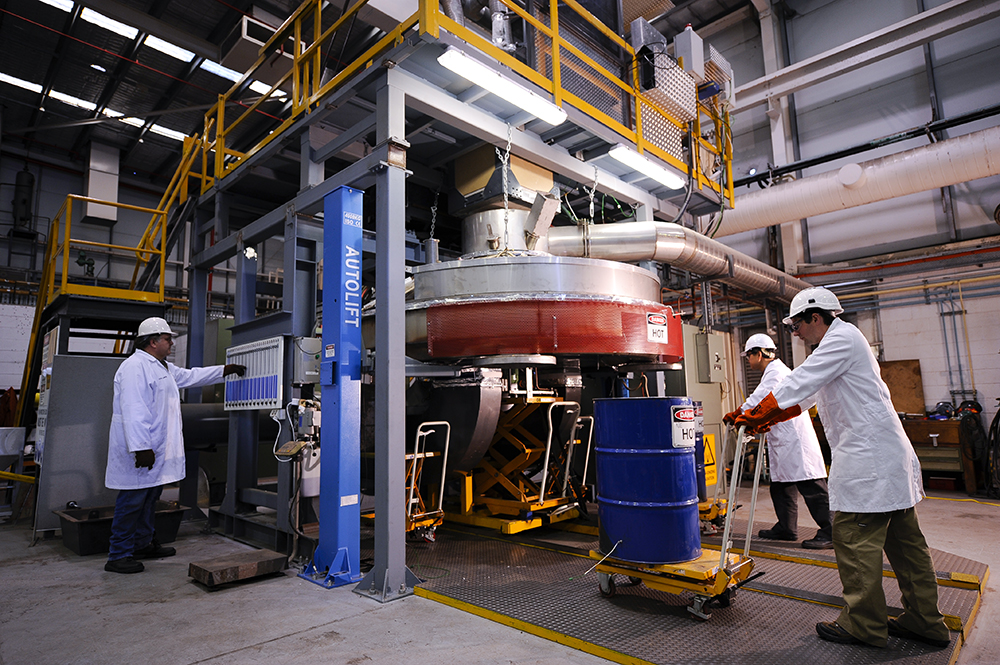16 March 2015
Forging a future in green steelmaking

Australian smart technology that harvests blast furnace waste and converts it into a new product to make cement, is being trialled for commercialisation in China where 60 per cent of the world’s iron waste is produced.
The process, known as Dry Slag Granulation, also reduces water use and greenhouse gas emissions, and is the focus of an agreement signed by CSIRO and the Beijing MCC Equipment Research & Design Corporation (MCCE).
The signing of the agreement, to demonstrate CSIRO’s Dry Slag Granulation (DSG) technology at industrial scale, is a landmark for Australia-China research collaboration and for environmentally friendly metal production, according to CSIRO Director of the Mineral Resources Flagship, Jonathan Law.
“Our collaboration is an exciting step towards the uptake of an innovation with real prospects of transforming the productivity and environmental performance of global iron smelting,” Mr Law said.
“The benefits from wide uptake of DSG technology on blast furnaces will be profound in helping the global industry to reduce water and energy use and greenhouse gas emissions while sustaining metal production.”
The DSG technology that is fitted to blast furnaces includes a spinning disc and granulation chamber that separates molten slag into droplets under centrifugal forces, uses air to quench and solidify the droplets, and extracts a granulated slag product as well as heated air.
The process produces a ‘glassy’ product that is ideal for cement manufacture, but has significantly lower associated greenhouse gas emissions than cement produced by conventional methods.
Air at 500-600°C extracted from the DSG process can be used onsite for drying, preheating or steam generation.
The technology also saves water and eliminates the underground water pollution that can be associated with alternative wet granulation processes.
“The benefits each year from full commercialisation and adoption of DSG technology are in the order of 60 billion litres of water, 800 petajoules of heat energy and 60 million tonnes of greenhouse gas emissions,” Mr Law said.
“Those savings are equivalent to 14 per cent of Australia’s energy use and about 10 per cent of our greenhouse gas emissions each year.”
In entering the collaboration with MCCE, CSIRO has recognised the R&D reputation of the Beijing-based company and its ability to scale-up the technology and introduce it into China - where 60 per cent of the world’s 300 million tonnes of iron blast furnace slag is produced each year.
Under the agreement MCCE is to scale-up and demonstrate the technology at industrial scale and, upon success, commercialise it in China and then potentially worldwide.
The agreement is the culmination of more than a decade of DSG technology development by CSIRO and industry partners including Arrium and BlueScope.
This work covered initial design and proof of concept stages through to the construction and operation of prototype DSG pilot plants at small, intermediate and large scales.
“DSG is just one of the CSIRO innovations in sustainable steel production and one of many solutions we have found for national and global challenges in the minerals industry,” Mr Law said.
“The DSG project is a good example of reward from continuous R&D investment and we look forward to working closely with MCCE to bring it to full fruition.
http://www.csiro.au/en/News/News-releases/2015/Dry-slag-granulation”
